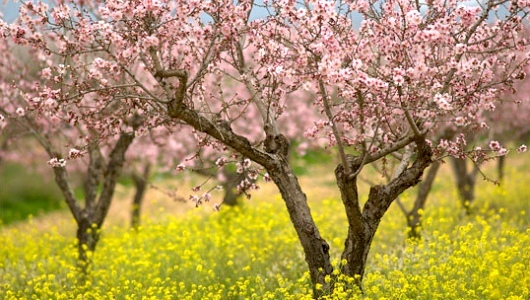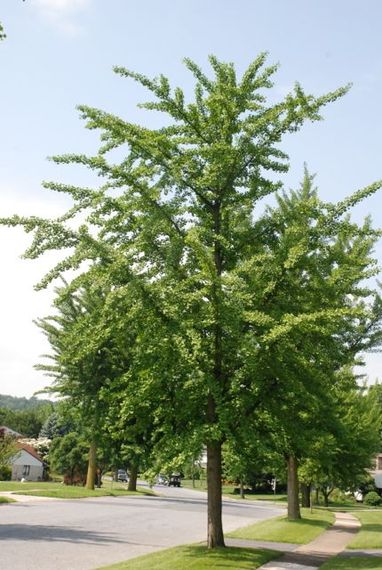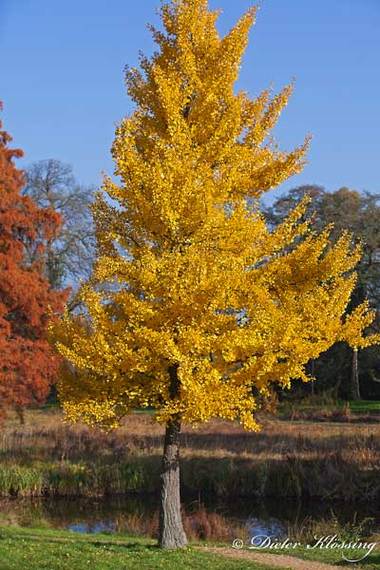Today is Tu B'Shevat, Jewish Arbor Day, the "New Year for trees." This is a minor Jewish festival and of all the Jewish holidays, probably the one most people have never heard of. Its name translates as the 15th of the month of Shevat.
It's the day on the Hebrew calendar marking the emergence of spring in Israel, specifically in fruit trees, and there are various customs associated with the holiday including a Seder and planting trees.
So trees are on my my mind, which is nothing unusual when you own a house. But it is unusual for someone who grew up in the Concrete Jungle. I lived in Washington Heights for a good part of my life and trees were just landscape to me: pretty to look at across the Hudson in the Palisades or in any number of parks, but they had no personality for me, and I felt no connection to them.
And then in the mid '80s I bought the house I still live in today. One of the first things I noticed about it was the gorgeous gingko tree at the base of its driveway that looked a bit like this one, only taller and more graceful:
I instantly flashed on the gingko tree near my elementary school, one I saw hundreds of times growing up. These are common in New York, but still exotic-looking with their succulent, fan-shaped leaves. And doubly so to me because in the Fall, the leaves turn Empire yellow and can drop in one day if the conditions are right. It's a glorious sight.
Our property had been part of a 400-acre farm and so we had a number of magnificent old trees, along with some ugly arbor vitae planted in the 1950s that blocked windows -- those had to go. Suddenly this city boy was visiting greenhouses, learning about shrubs and trees, reading up on about soil conditions, and digging and planting.
That's when I discovered that the spindly little magnolia at the front of our house probably needed more acid in its soil. I helped it out, of course, but one night, remembering how my mother used to talk to her plants and how they thrived like crazy, I went out there, put my hands on the tree, and spoke what I hoped were encouraging words. When I got back inside, my spouse asked if I was writing a short story about Druids.
I'm happy to say the tree flourished after our encounter, and sorry to say that it ultimately had to be removed because of raging magnolia scale that couldn't be controlled. And that's how it goes. Trees bring me joy and they also bring me sorrow when they fall prey to pests or get savaged by storms. We've lost some beauties over the years to wind, ice, and snow.
I watch them change from one season to the next with fascination. I care for them actively. And they make me feel more connected to the world around me, season by season, as well they should. One Midrash tells us:
"When God created the first man he took him and showed him all the trees of the Garden of Eden and said to him, 'See my works, how beautiful and praiseworthy they are. And everything that I created, I created it for you. Be careful not to spoil or destroy my world--for if you do, there will be nobody after you to repair it.'"
Lev Raphael's 25th book Assault With a Deadly Lie is a novel of suspense set in a quiet Michigan college town. Like the rest of his mysteries, it features a Jewish sleuth. You can check out his other books at http://www.levraphael.com.


